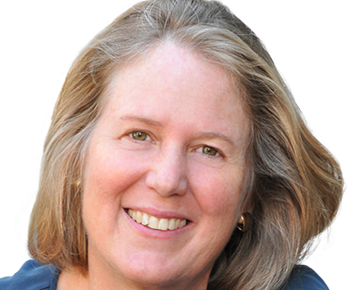Google Targets AWS With New Cloud Boss Diane Greene

Google is upping the ante in the cloud, moving beyond incremental tactics like price wars with market leader Amazon Web Services, to develop a long-term enterprise strategy under new cloud services chief Diane Greene.
The search giant on Thursday (Nov. 19) appointed Greene, a Google (NASDAQ: GOOG) board member and co-founder and CEO of VMware (NYSE: VMW), to head its enterprise cloud business. Greene is charged with extending Google's mostly consumer cloud business to corporate customers, a market dominated by AWS (NASDAQ: AMZN).
Google also announced it was acquiring Greene's cloud application development platform, bebop.
While industry watchers fault Google for failing to gain enterprise "mind share" despite cloud computing, storage and analytics on a par with AWS, others suspect it is gaining momentum in the expanding cloud market. For example, in-memory database vendor VoltDB recently sponsored a cloud benchmark competition in which the Google Cloud Platform outperformed AWS in terms of raw performance and pricing.
"The most interesting thing to us about the performance of the three leading cloud platforms is the performance of Google compared to the de facto market leader, AWS," VoltDB's John Hugg noted in a blog post describing the cloud benchmark results. "Google was 1.8 [times] faster in absolute performance and 2.1 [times] faster in operations per dollar. It reminds me of the “AVIS: We Try Harder” slogan, where the second-place competitor has a lot more to prove. So here’s Google, the scrappy upstart?"
Observers note that Google also has a simpler pricing model than AWS: Amazon charges by the hour while offering discounts for long-term commitments and pre-payments; Google charges hourly but provides discounts the longer an instance is used. "Overall, it appears Google’s cloud offering is worth evaluating, and the “Nobody got fired for choosing AWS” mentality might have legitimate cracks," Hugg noted.
Google said Greene's new title will be senior vice president of its enterprise businesses. She will remain on Google's board, which she joined in 2012.
Greene told the New York Times this week her goal would be harnessing Google's growing capabilities to develop cloud-native enterprise applications and other cloud services. Signaling that the search engine giant is poised to move behind Gmail and other consumer services, she told the newspaper, "We want to bring together and integrate these technologies in a usable way so companies can move more quickly and make better decisions."
That strategy indicates that Google intends to leverage its fully formed Cloud Platform to help companies scale their operations through cloud infrastructure capable of storing and analyzing ever-larger data sets.
In tapping Greene as its cloud chief, Google also announced it was acquiring her most recent startup, bebop, a development platform for building and maintaining enterprise applications. Greene's development team also will join Google.
In a blog post announcing Greene's appointment, Google CEO Sundar Pichai stressed there is plenty of room for growth in the enterprise cloud market. "Only a tiny fraction of the world’s data is currently in the cloud—most businesses and applications aren’t cloud-based yet. This is an important and fast-growing area for Google and we’re investing for the future."
Pichai added that Greene would oversee the integration of Google's cloud businesses, including its Cloud Platform, Google for Work and Google Apps. He claimed that more than 60 percent of Fortune 500 companies are currently using a paid Google for Work service.
With an eye toward challenging AWS's dominance in the public cloud market, Pichai also stressed, "Google has significantly larger datacenter capacity than any other public cloud provider—part of what makes it possible for customers to receive the best price and performance for compute and storage services."
Nevertheless, the overriding trend in the enterprise cloud market is the ability to develop applications that function without a hitch on premises and in the public cloud. Hence, developing a hybrid cloud strategy will likely be one of Greene's priorities as the company takes on AWS.
Related
George Leopold has written about science and technology for more than 30 years, focusing on electronics and aerospace technology. He previously served as executive editor of Electronic Engineering Times. Leopold is the author of "Calculated Risk: The Supersonic Life and Times of Gus Grissom" (Purdue University Press, 2016).











